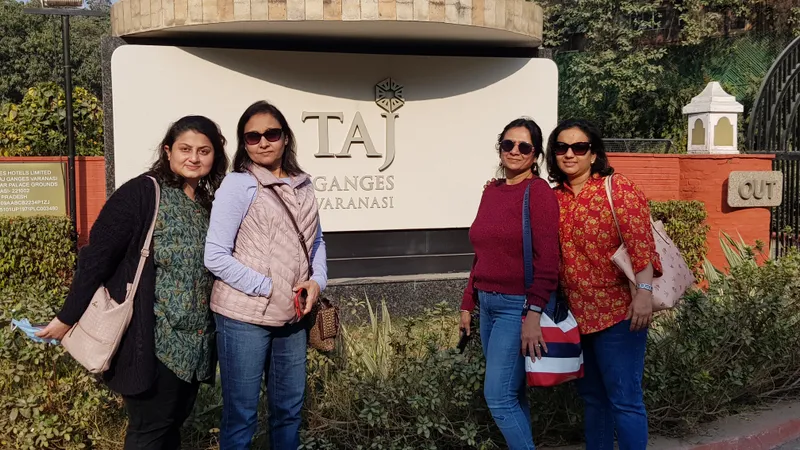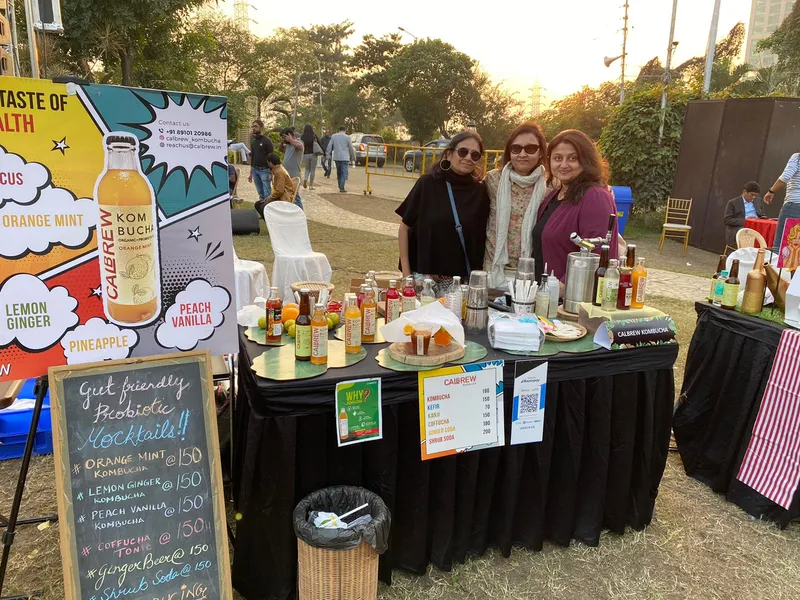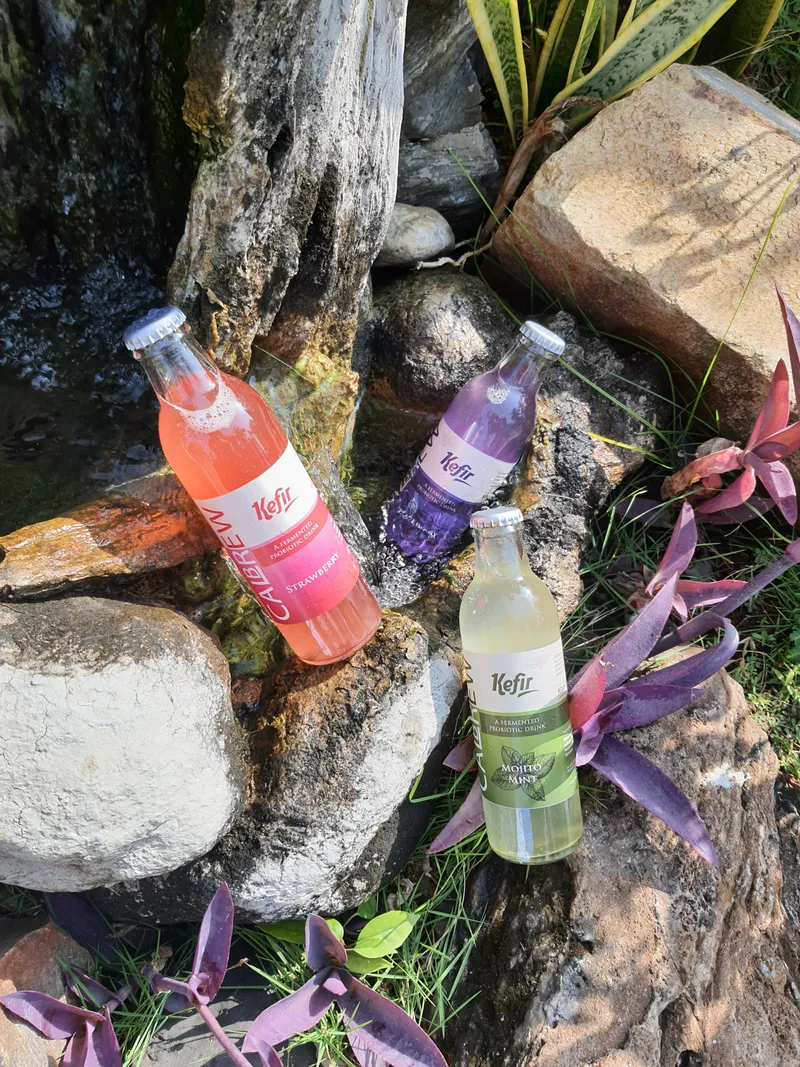These friends turned entrepreneurs are hitting the right note with their organic kombuchas
Kolkata-based Calbrew Kombucha was started by four friends—Sonali Sonpal, Shilpa Soni, Jagruti Shah, and Smita Agarwal—in 2021. In a few months, the brand has found a place for itself in Kolkata’s favourite cafés and even wellness expert Luke Coutinho’s health website.
It took many cups of strong chai and deep camaraderie for four Kolkata-based friends—Sonali Sonpal, Shilpa Soni, Jagruti Shah, and Smita Agarwal—to brew a kombucha business in the city. Once they set forth, there was no looking back.
In 2007, the four women, strangers until then, attended a women's financial freedom workshop in Kolkata, where they quickly connected and remained steadfast friends, united by their responsibilities of managing home, children, family businesses, and more.
Fast forward 15 years, the friends have turned entrepreneurs with Calbrew Kombucha, which brews the fermented, lightly effervescent, sweetened black tea drink commonly consumed for its purported health benefits.
Barely a year old, the brand is a firm favourite with several Kolkata cafés, including Glenburn Café and Bunosilo Estate Coffee Roasters. Wellness expert Luke Coutinho has featured Calbrew Kombucha on his health food website.
“The concept of Kombucha was relatively unknown even to us until our friend Sonali told us about it. Her son, who was visiting from the US, introduced this to his mother, who started making kombucha at home with different flavours,” says Jagruti in a chat with HerStory.
During a holiday in Varanasi in 2020, Sonali broached the topic of starting a venture together to make and sell kombuchas. Incidentally, all four women were contributing to their respective family businesses in some form and, over time, had grown to understand that carving a niche for themselves was important for them.
“In family businesses, what happens is, eventually, there is always some amount of male chauvinism. I understand it, because they have been working for ages, and they know the know-hows,” says Smita.
They started by experimenting with different flavours of kombucha, brewing it at Sonali’s home, bottling it, and distributing it to friends and family.
The demand quickly caught pace, and the quartet were forced to look for a rented place to use as a manufacturing and bottling unit. They soon named their venture Calbrew Kombucha and registered the company in 2021.

Founders of Calbrew Kambucha on their holiday in Varanasi
Why Kombucha?
The history of kombucha dates to 220 BC when it supposedly originated in northeast China and quickly became popular for its healing properties.
The rising popularity of superfoods in India has seen kombucha become a health ‘fad’, replacing sodas and other carbonated drinks. The fact that one can infuse several flavours to make it more appealing to a wider audience has also helped.
As Calbrew Kombucha is driven to be organic, the makers are particular that they choose the finest variety of loose tea to get the basics right. “We use organic tea leaves like Oolong, Nilgiri, white, green and black tea to make our Kombucha,” Smita says.
The four co-founders work on the recipes after much in-house research. The flavours—ranging from orange mint to peach, vanilla, and more—are constantly tried and tested with new blends, infusions, and seasonal flavours like lavender, which it sources from Kashmir.
The company is awaiting certification for being organic. “That's why we're not using the word organic on our bottles, although we’re using only organic products,” says Smita.
Calbrew’s products are available on its website for pan-India shipping, and the founders soon plan to make them available on ecommerce websites, including Amazon and Flipkart.
“Sorting out cold chain storage and delivery was not easy, but we have now figured it out. Since our products do not have any preservatives, they have relatively shorter shelf lives, and we wanted to ensure delivery does not hamper its quality,” says Smita.

At an open market
Category expansion and more
Besides Kombucha, the company is now on to manufacturing other fermented drinks like kefir, originally both water and milk-based drink.
A fermented, naturally carbonated drink made with probiotic-rich water, kefir grains contain a healthy mix of beneficial bacteria and yeast. Calbrew’s kefir flavours range from blueberry and litchi lime to kokum and mojito mint.
Its most recent product, Coffucha—a blend of coffee and kombucha—is a fizzy cold brew coffee, fermented for seven to ten days with the help of the symbiotic culture of bacteria and yeast.
Moving further up the superfood category, Calbrew also manufactures a seasonal product called “kanji” — made using fermented seasonal vegetables like beetroot and carrots and turned into a ready-to-drink juice. For now, this product is only available for sale in Kolkata due to its short shelf life.
At present, the company is bootstrapped, and the four founders are clear they will not seek external funding, focusing instead on slow, steady, and organic growth.
“If we wanted to, it would be so easy for us to scale this in a big way by pasteurising and carbonating the products. But that is not what we are here to do. We first want to educate people on the health benefits of kombucha and keep the USP of the product intact — it is meant to give you good health and good taste,” Jagruti says.
Other Indian kombucha brands include HappyBooch, Atmosphere Studio, and Borecha.

Of friendships and partnerships
Ask any entrepreneur, and they would say, while founding a company is complicated, running it is even more strenuous.
Does it make it any easier if one has their friends on board on this journey called entrepreneurship?
Smita says, “For nearly 20 years, all four of us had been so involved in helping our husbands run their businesses that we were not updated with the new ways of working, financial matters, etc. When it was time for us to look for something worthy to do, we wanted something where we would fit in easily, and be the boss. It’s not like we’re in our 20s, where we have all the time in life to settle, grow, learn, unlearn, manage, and then blossom,” says a candid Smita.
She adds, “At our age, we all knew that getting into a partnership is not easy, but if we were to do it, it could work out best with each other as we had been friends for so long.”
Edited by Suman Singh








